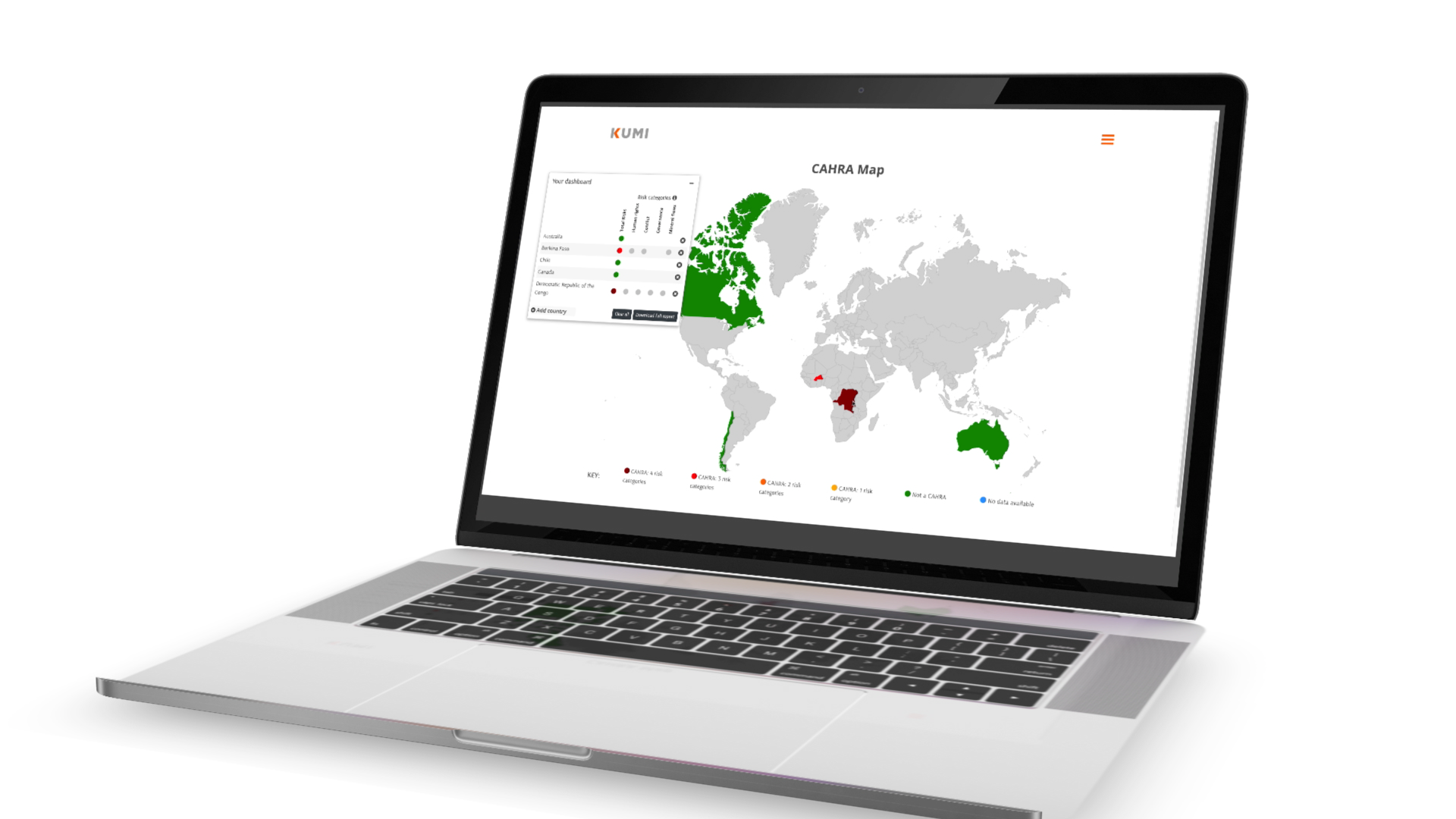Kumi launches CAHRA Map to support companies’ due diligence in minerals and metals supply chains
- CAHRA Map uses robust indicators to help companies identify supply chain risks
- The user-friendly tool fulfils responsible sourcing compliance requirements from sector regulation and industry schemes
- CAHRA Map enables companies to provide a clear audit trail of CAHRA risk assessment.
(CAHRA: conflict-affected and high-risk area)
13 May 2020, London: Kumi, a market leader in responsible sourcing practices for global supply chains, has launched a due diligence tool called CAHRA Map to enable companies in the minerals and metals sector to identify ‘conflict-affected and high-risk areas’ (CAHRAs).
“The identification of CAHRAs is a critical step in the responsible sourcing requirements set out by, for example, the London Metals Exchange (LME) and the Responsible Minerals Initiative (RMI)”, said Andrew Britton, Managing Director at Kumi. “Identifying CAHRAs can be complicated. There are a wide range of potential data sources to analyse and judgements to be made on how risks may be defined. CAHRA Map does the hard work of collating and analysing this information, enabling companies to make informed decisions about potential risks in their supply chains.”
CAHRA Map utilises the four key risk categories set out in the European Commission’s guidelines for identifying CAHRAs that accompany the EU Conflict Minerals Regulation, namely: human rights; conflict; governance and mineral flows, the latter indicating where product from undeclared high risk sources may enter a supply chain.
“CAHRA Map aims to inform a company’s sourcing decisions, helping identify where additional due diligence may be needed and what particular risks may be relevant in its supply chain locations. Without knowing this it is very difficult for a company to understand where to focus its due diligence or risk mitigation actions,” added Britton.
CAHRA identification is also included in the responsible sourcing requirements of the London Bullion Market Association (LBMA) and the Responsible Jewellery Council (RJC), amongst others. The common denominator for all these schemes is the OECD Due Diligence Guidance for Responsible Supply Chains of Minerals from Conflict-Affected and High-Risk Areas. Alignment with the OECD’s Guidance is a compliance requirement under the EU Conflict Minerals Regulation.
CAHRA Map has been specifically designed to support companies in meeting compliance requirements, providing an audit trail that will demonstrate to auditors or customers how CAHRA risks have been assessed.
About Kumi
- Kumi is a sustainability consultancy that specialises in responsible supply chains. Kumi provides strategy advice, management support, due diligence and compliance services for social and environmental performance within global supply chains.
- Kumi supports clients at all stages of the metals and minerals supply chain to implement responsible sourcing strategies and meet compliance standards, ranging from mining operators and traders through to smelters, refiners and downstream manufacturers.
- Kumi worked closely with the OECD to deliver the highly strategic Alignment Assessment project. This involved detailed evaluation of the design and implementation of supply chain due diligence requirements set by the five most established industry programmes in the minerals sector.
- Kumi, in partnership with RINA, has been appointed by the European Commission to assess the compliance of supply chain due diligence schemes with the requirements of the new EU Conflict Minerals Regulation.

